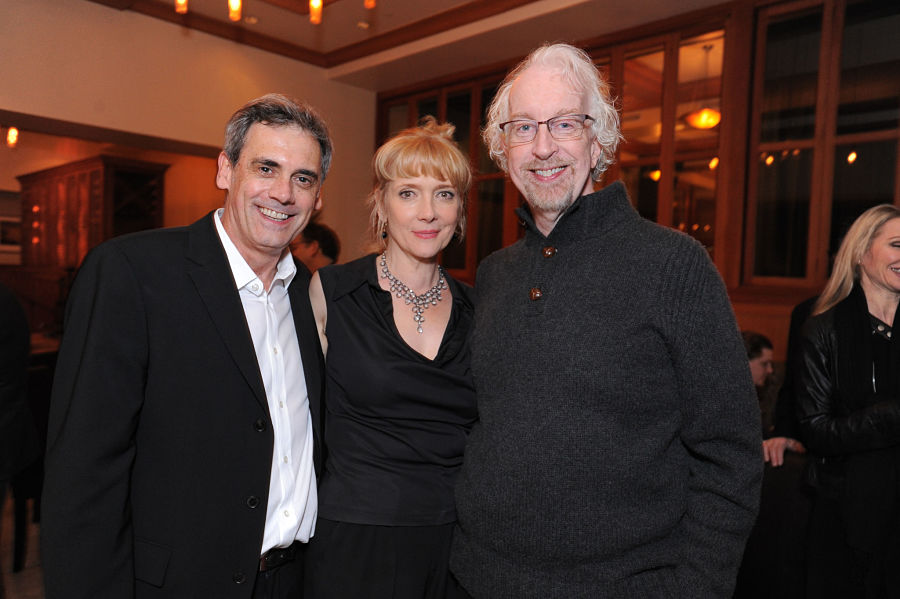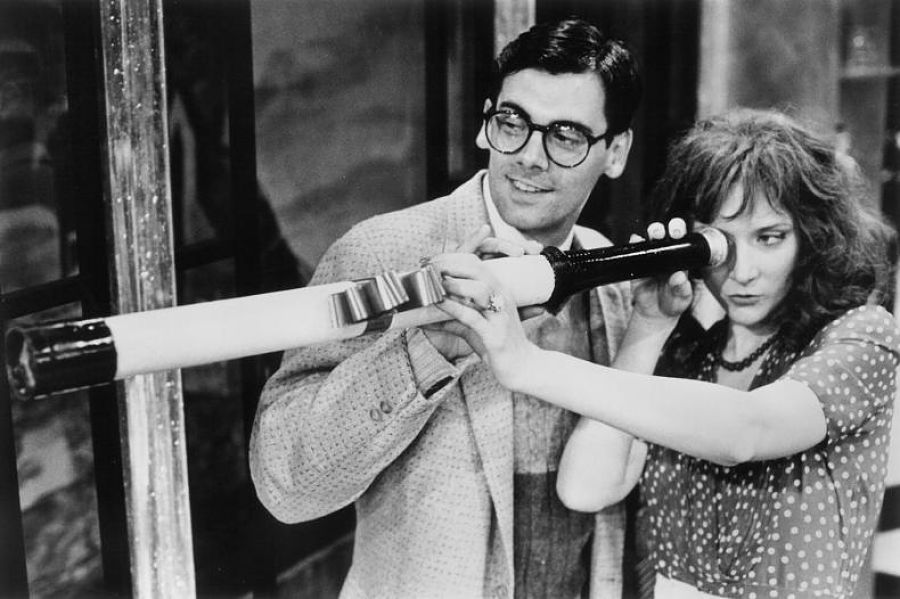Glenne Headly, a Steppenwolf Theatre Company ensemble member who was also known for memorable film roles in Dirty Rotten Scoundrels and Dick Tracy, died on June 8 at the age of 62.
Anyone who knew Glenne Headly will never forget her. She was indefatigable, vivacious, smart, and beautiful. Her middle name, Aimee, means “dearly loved.”
I first saw Glenne onstage in 1979, having driven 150 miles from ISU in Normal, Ill., to see Say Goodnight, Gracie at Steppenwolf in Chicago. I knew several cast members from college, but Glenne’s roots were New York. She bowled me over: She worked so precisely, delicately yet powerfully, seemingly effortlessly, sweet, fierce, hilarious, sad. And that voice—beguiling and musical.
A year later, having moved to Chicago, I met Glenne when I joined the cast of Steppenwolf’s Balm in Gilead. I vividly remember our first conversation. We were sitting in Sparta Gyro, a tiny Greek eatery next door to the Jane Addams Hull-House where Balm was being performed. Topics were wide-ranging, from theatre to politics to the health of the planet, a lifelong passion of Glenne’s. She was an environmentalist before I knew what it was. And that voice—serious and smart.
For those of us fortunate enough to be “in the room” for Chicago theatre in the 1980s, the time was extremely joyful and incredibly creative. One of my great good fortunes is to have watched and worked with Glenne. Memorable is the pathos in her performance in that first Balm in Gilead. Toward the end of the play, Laurie Metcalf and Glenne had a 20-minute scene in the booth of a diner. Those of us not onstage often snuck around to the front of the theatre to watch the two of them. Even though Laurie had all the words, a good deal of the magic was in the give-and-take between her and Glenne. Watching Glenne listen to Laurie’s story was as captivating as watching Laurie tell it. Their effortlessly, soundlessly passing the focus back and forth and Glenne’s listening transformed a 10-page monologue into a dynamic two-character scene. And that voice—I swear I heard it even when she had no lines.
Onstage through the ’80s and ’90s, I got to play Glenne’s lover, husband, and creepy molester uncle. As artistic director at Steppenwolf, I was forever encouraging her to return to our stage.
As rich as the memories of her work are the memories of Glenne’s friendship. She was a fiercely loyal and fun friend who loved hosting wonderfully competitive parties of parlor games. Evenings rose and fell on the sounds of her laughter.
A wonderful byproduct of moving to Los Angeles and becoming the artistic director of the Geffen Playhouse was rekindling my creative relationship with Glenne. In 2011 Glenne telephoned me out of the blue to report that she had been the night before in Beth Henley’s living room, where Beth had gathered some friends to read her newest play, The Jacksonian. (In 1983 Glenne and I met Beth when we were in Steppenwolf’s production of The Miss Firecracker Contest.) With nearly 30 years of history with Glenne, as she described the show, I knew that it was special—a dark but funny autobiographical piece. Reading in the living room with Glenne were Ed Harris, Amy Madigan, and Bill Pullman.

A year later they all premiered in the play at the Geffen, and the following year, largely through Glenne’s indefatigable efforts, opened in New York. Glenne’s work in this show was breathtaking and fearless, top of her game.
In 2016 Glenne returned to the Geffen in Sarah Ruhl’s Stage Kiss. Once again Glenne astonished and delighted audiences with her effervescent, offbeat performance. And that voice—endearing and alluring. Unforgettable.
The last professional proposal Glenne and I talked about was a play she had written for young audiences. The script arrived complete with Glenne’s hand-drawn and -colored cover artwork. The play, a cautionary tale about bats and bees and a mischievous fairy named Trinket, is entitled Wonderful, Marvelous, Fascinating World. For anyone who knew Glenne, the world always was so.
We miss you, Glenne Aimee.


